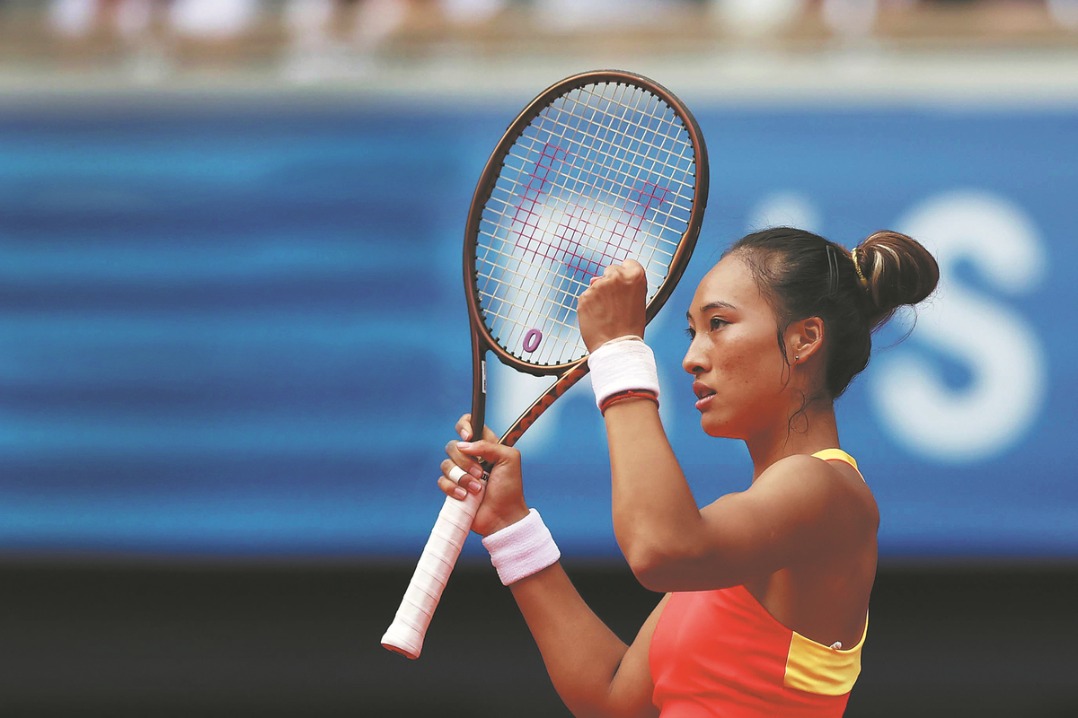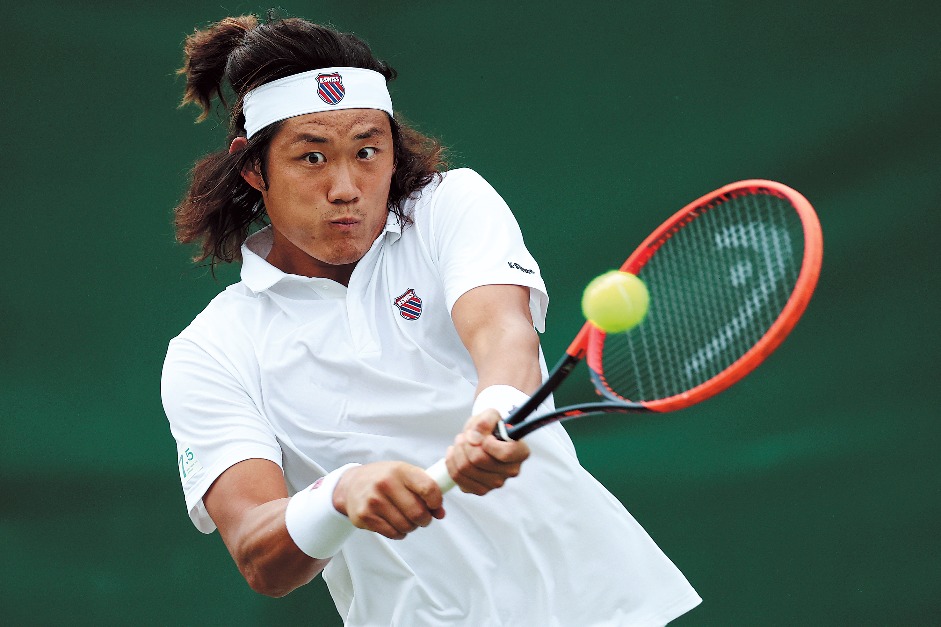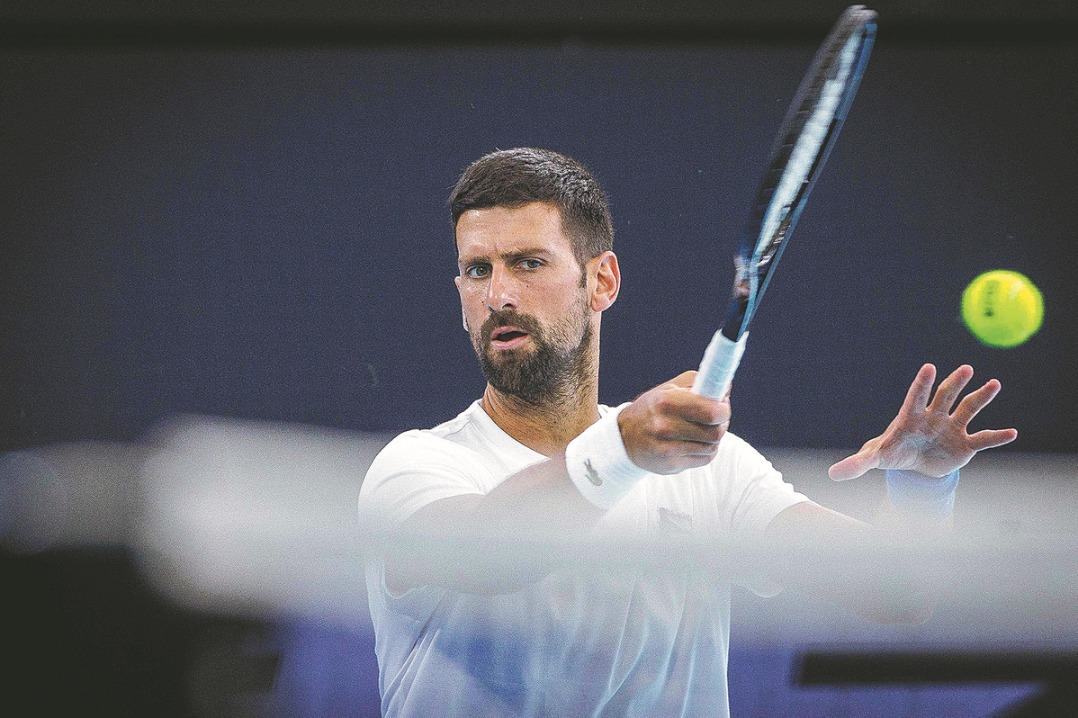Grassroots the key to nurturing talent


China's hopes rest on getting more kids interested in skates, sticks and pucks
With China busy trying to build a competitive hockey program for the 2022 home Olympics, the sport's international governing body has called for equal efforts at the grassroots level to keep the puck moving forward.
As part of an ambitious effort to perform respectably in all 109 events at the 2022 Games, China has revamped its national hockey program through a series of bold measures, including entering teams in overseas leagues and drafting talent from abroad and from other disciplines.
The International Ice Hockey Federation, the sport's global governing body, acknowledges the efforts being made at the elite level, and expects more to follow in the junior and amateur ranks.
"This is the first Chinese program to identify the potential athletes and give them the best environment to learn and train, which is impressive," Thomas Wu, an IIHF vice-president, told China Daily in Beijing.
"We hope to see China not only have a good performance in 2022, but that hockey will be better understood here and more participants will come into the sport."
Last May, the IIHF voted to allow China to enter its men's and women's teams in the 2022 Olympic tournaments, breaking with the convention of making the host nation go through the challenging qualification process.
With neither a tradition nor a deep talent pool in the sport, China's 33rd-ranked male and 20th-ranked female squads would not be part of the Olympics' 12-team men's and top-10 women's tournaments if not for the direct berths granted by the IIHF.
The nod from the governing body was approved on condition that the sport's long-term survival in China is supported and facilitated, said Wu.
"That's something that has been talked about a lot," said Wu, an entrepreneur and avid hockey promoter in Hong Kong. "We have to both prepare for the 2022 Games and ensure the long-term development of hockey in China."
With help from clubs such as Kunlun Red Star, KRS-ORG and Jilin Tsen Tou, the Chinese Ice Hockey Association has managed to assemble a mix of talent selected from domestic ranks and tryout camps for overseas Chinese.
The teams have been entered in the Russia-based Kontinental Hockey League, the rebranded Silk Road Hockey League (formerly Russia's second tier) and the Canadian Women's Hockey League.
The experimental program will be tested next month when China competes in the fourth-tier (Div II Group A) men's and third-tier (Div I Group B) women's world championships, in Belgrade and Beijing respectively.
As for the promised Chinese domestic pro league, it was reported in December that the CIHA would launch an eight-club circuit in May, but the association told China Daily last week the plan is not yet ready to be announced.
Still, CIHA president Cao Weidong stressed earlier that the proposed league is at the top of the association's 2019 agenda because "increasing the number of games between homegrown talent is critical for the 2022 preparation".
Some enthusiasts have already taken steps in that direction.
Xu Hehao, a student player for Bates College in Lewiston, Maine, is organizing an eight-team international collegiate tournament that will be hosted in Beijing immediately following the April 6-12 women's worlds at the same venue - Shougang Ice Hockey Arena.
Supported by the Beijing Hockey Association (BHA) and China Central Television, the tournament, including teams from Harbin Sport University, Kwangwoon University of South Korea and Bates College, is the result of long-term planning by Xu and his hockey-loving peers.
"The lack of systematic amateur competitions should be addressed as quickly as possible so that the surging interest in junior hockey can be maintained and channeled to the adult ranks," said Xu, who got started in the game about a decade ago in Beijing and once played on the same youth squad as Song Andong, the first Chinese drafted in the NHL.
Song, a Beijing-born defenseman who played youth hockey in Canada and the US, was selected by the New York Islanders, 172nd overall, in 2015.
A lack of facilities, training expertise and school competition, as well as the expensive nature of hockey, are other issues hampering the sport's rise in China.
"We have to seize the opportunity brought by the 2022 Winter Olympics to improve facilities on campuses and to introduce organized competitions from the high school level up to avoid kids quitting the sport," said Yang Yang, who won China's first Winter Olympic gold medal at the 2002 Salt Lake City Games in short-track speed skating.
According to the BHA, about 1,500 student players signed up with 120 teams to compete in its interschool league in 2018, but only 11 squads were built above the high school level.
Of the 4,000 players registered with the municipal association, the overwhelming majority are primary school students.
Meanwhile, China's renowned Tsinghua University is building an indoor ice sports center featuring a standard hockey rink, which is due to be completed in 2022.
That could be a prelude to entering the collegiate event, said Liu Bo, head of the university's sports division.
The IIHF is encouraging similar efforts to be made ahead of the 2022 Olympics.
"Those are very important steps in growing the sport, so perhaps we can see more formalized school competitions in Beijing," said Wu.
"The core development of a player is actually at the secondary school level, so if we can combine education and hockey, they can have enough time to develop over the course of their schooling.
"That will be a very strong foundation for future national teams. Maybe we can figure that out and make it happen in the next two years or so."































